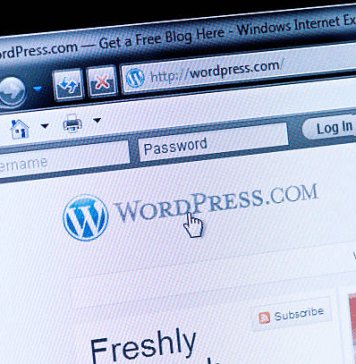
Working from home is definitely a blessing for most of us; we get to have the comfort of our own homes while making money. This wouldn’t be a thing for most employees if it was not for COVID. Although we are accepting this work model with excitement and happiness, we must remember that working from home might be a great security risk for the company’s assets.
Now let’s make it clear that the responsibility of securing remote work does not only belong to the IT security team; employees also have to do their part. Being secure when working from home should be taken very seriously, and teamwork should be the key. Let’s see some tips and solutions to securely work from home and keep company data protected.
1. Separate Devices For Work And Personal Use
Any computer you have for personal use is at greater risk of being compromised since you visit different websites and cannot be sure how safe they are. This will put company data in danger if you are also using the same device for work. Although your employer will have some tools for you to secure the connection while working, you do not want to take this risk.
The best way to get rid of this problem is simply to separate work and personal devices. Just don’t mix the two, and you will be taking a great step toward being secure online. This might look like the sole responsibility of the employee, but it is the employer who will make sure to provide company devices to their users if they want to be sure about their safety.
2. Keeping Up With Software Updates
Updates on your computer and other software you utilize daily might be annoying at some point, and it’s tempting to just ignore them. Well, the bad news is this would be a great mistake, and the importance of updates cannot be over-emphasized.
Updated software on computers is always one step ahead of the malicious users on the internet, and they always make the device more secure by fixing vulnerabilities. Companies should focus on promoting these updates and train their users to always look forward to them.
3. Use Multi-Factor Authentication
When working remotely, authentication is the key to security. Employee devices might be compromised or get into the wrong hands, and if you do not properly verify, there is a real chance that the device is being used by someone other than your authorized user. You just cannot be sure as the end-user is not there in the office, face-to-face with you.
Passwords fall short of authenticating a user for various reasons. The first thing is that most passwords are not secure enough, and they can be easily hacked. The second thing is that a password is something a person knows, which another person might also know. But when you implement multi-factor authentication and verify users with something they have, such as biometrics, you are boosting security.
4. Train your employees on cybersecurity
Work-from-home employees will be spending their day mostly unattended and open to cyber threats such as phishing scams, weak passwords, and malicious websites or content. They will need to know how to counter-act such threats and what to look for to make sure they are keeping company data safe.
Setting up cybersecurity training for these remote users is a must. Your IT security team has all the knowledge that the end users need to know, and there is no reason not to utilize this resource. It is highly suggested to gather the employees on a well-planned training on how to avoid daily cyber risks.
5. Get a Dedicated IP Address
The network of your company is where you store all your assets and where your employees do their daily work. They communicate on that network, exchanging valuable information, so you have to protect this network with all you have.
One of the easiest ways to ensure the security of your network is by using a dedicated IP address. VPN, in general, is a great way to protect a private network but getting a dedicated IP VPN is on another level for several reasons.
When you have a dedicated IP address, you get to control who can join this network since you will be the sole owner. Shared IP address comes with disadvantages which are caused by other users of that IP and can affect your network.
6. Use Antivirus Software
Even though employees are using their personal devices for work, they need to be checked regularly to have an up to date and robust antivirus software. When you think about approximately 236 million ransomware attacks that happened in just the first half of this year, antivirus software looks to be a great investment.
The choices for antivirus software are virtually limitless, but you need to make sure to get an advanced one that can protect employee devices from ransomware, malware, DDoS attacks, and trojans. Don’t skip this very crucial tool that every device should have, whether to protect company data or personal information.
7. Set Up Remote Working Policies
You need to have a clear plan on what, when, and how to do things when it comes to remote work. This would include security policies such as specific access permissions to data encryption which, on the whole, will ensure that information is protected effectively.
These regulations should be implemented on every employee’s device, and the IT security team should always be looking for these guidelines and policies. A remote work cybersecurity policy will give your IT team a checklist they can go over with the employees.
8. Choose Third Party Providers Carefully
A remote work environment will most likely include some outside tool assistance where you need to share some information with third parties. A regular employee might use several applications on a daily basis which all somewhat utilize company data, so the providers of these applications need to be selected carefully.
What you need to look for are clear and effective security precautions, data backups, and recovery plans. You want to rest assured that they protect your data with all they have and know how to avoid cyber threats.
Conclusion
Remote work will be a part of professional life in the coming years as well. It’s not a temporary thing anymore as more and more businesses realize its advantages. This leaves us with the question of how to ensure remote work is safe for both the employees and the company.
Securing company data and protecting the company network is a must if you want to avoid legal penalties and loss as a result of cyberattacks. Remote employees are the first line of defense when it comes to this, and the above suggestions are here to protect them.













